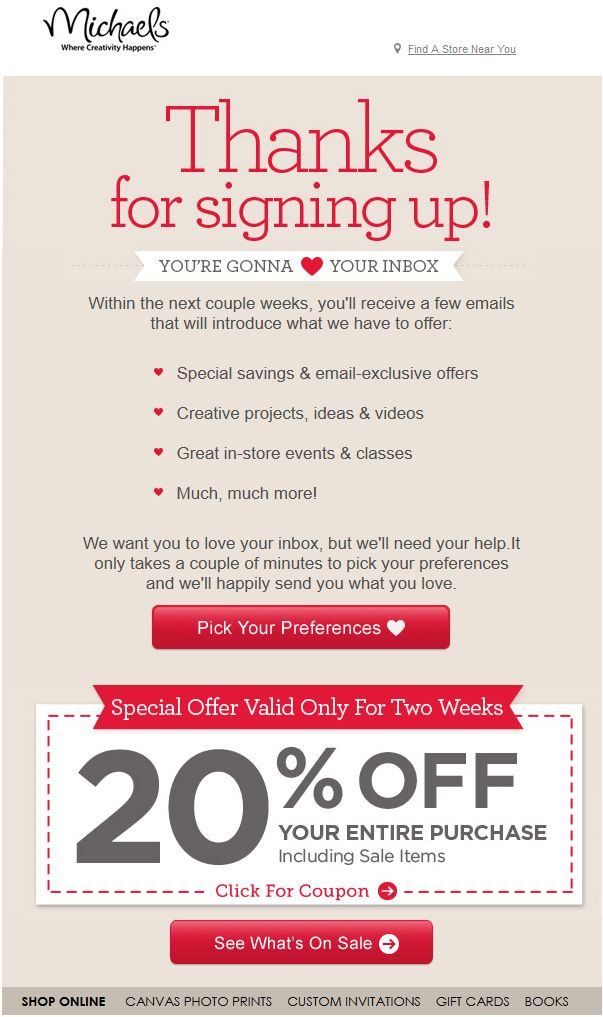With improvements in technology, buyers are more sophisticated and have higher expectations from brands than ever before. Technology has enabled companies to have more direct interactions with customers in a scalable way - a concept that would have been virtually alien to people only a few decades ago.
The downside with this advancement, however, is that creating an eCommerce marketing strategy is becoming difficult for brands. If your business uses an outbound-only model, you're probably facing the highest customer turnover yet.
Although losing some customers is inevitable, we're sharing how to retain the customers that you worked so hard to win in the first place.
Creating A Successful eCommerce Marketing Strategy
When thinking of ways to impact your bottom line, consider your customers. What if each customer bought one more product each year? Or opted into a higher-level of service? What if you could double or triple your conversion rate on new customers?
All of these things happen to be some of the benefits of using the inbound marketing methodology. Read on to discover valuable insights that will help you create a successful eCommerce marketing strategy.
Clean Up Existing Data
An old database that has not been maintained well tends to have many email addresses of people who have left their companies or are no longer interested in what you have to offer. In other words, these email addresses are poor prospects for your products.
That's why it's important to clean the data you already have by stripping out old email addresses that haven't opened one of your emails in over a year. Yes - your list size may shrink, but the reality is that the size of your list means nothing if it's full of junk.
In fact, a larger list of outdated emails can actually harm your brand. You're more likely to experience lower open and click-through rates, which results in lower future deliverability rates, spam complaints and even blacklisting.
Spend time in the beginning to ensure you're starting with accurate data.
Use Cookies
It's impossible to track and nurture people properly if you don't know who they are. Get users cookied properly by using a tool like HubSpot.
Send an email to that clean list you made with the intent of getting them to click and arrive at your website. This sets the tracking cookie.
A couple options that have been successful in the past:
- Sending an email with a discount code to receive a percentage off your next order
- Sending an email that directs users to advanced content such as eBooks or guides
See how Michael's includes a discount coupon in the first email they send to prospects:

Remember, the goal is to get a user to click within your email so that they're directed to your site. This is what associates their email with their browser - and your eCommerce marketing strategy will be more optimized to that user based on that cookie.
Share Blogs & Advanced Content
Through blogging and sharing advanced content, your brand creates an avenue for customers to engage in conversation and learn more about your brand. Though it may be difficult to come up with content to share at first, be sure your blogs remain relevant to your audience and are consistent with your brand. And if you don't have a blog just yet, follow these company blogging tips to help you get started.
Advanced content is similar to a blog but provides more in-depth information on a topic. Think of tip sheets, how-to guides and whitepapers. These piece of content show your brand's expertise in the industry, so take advantage of them.
If you need inspiration or would like to see how advanced content differs from a blog post, browse some of our resources.
Re-Purpose Content For Different Mediums
So, you've spent 20+ hours writing and polishing the perfect eBook for a particular segment of your audience. Why stop there?
With all the different channels of communication out there, re-purpose your content to be sent out through different mediums (we promise this will work to your advantage!)
Take interesting screenshots or infographics from your eBook and create landing pages exclusively for them. By teasing the quality content locked within the eBook, this will help to increase the number of downloads of the eBook itself.
You can even expand on different chapters in standalone blog posts or evergreen articles (those that are always timely.) Since you've already spent the time and effort creating quality content, figure out how to better leverage it.
There's nothing wrong with having similar content displayed in multiple locations on your site - as long as you address duplicate content issues for search engine indexing purposes. That high-quality piece of content should be accessible from as many relevant places on your site as possible without hurting your SEO.
Optimize Landing Pages For Conversion
Website traffic is great; however, it's useless if your landing pages aren't converting or you're not capturing users' email addresses.
Decide which content should be freely available on your landing page and which content should be gated behind a registration form. Be sure to follow landing page best practices to ensure your pages are highly-optimized.
Remember: the greater the perceived value of the content, the more information you can generally request. For example, an expert assessment request can get away with requesting more personally identifiable information than a newsletter signup. Customers don't like to give out too much information at the beginning.
Conclusion
We hope these insights help your eCommerce marketing strategy become successful. Remember to always keep the customer's needs in mind and share content relevant to them and your brand.
If you have any questions or concerns, would like more information, or need help creating your eCommerce marketing strategy, contact us through the form below. Our team will be in touch!
 from Groove Commerce Blog https://ift.tt/3dbUQff
from Groove Commerce Blog https://ift.tt/3dbUQff via IFTTT
via IFTTT
No comments:
Post a Comment